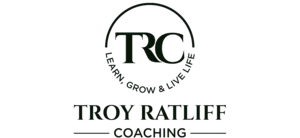
HOW TO WRITE A SALES SCRIPT
Instead of thinking about sales scripts as rigorous, repeating, word-for-word checklists with no opportunity for variation, it is preferable to view them as guidelines rather than formulas. Any sales conversation that is successful will require some degree of creativity and skill.
However, when speaking with prospects, having a basic sales script to guide the conversation can be quite helpful. You risk coming across as sloppy, unprepared, or indifferent if you enter a sales conversation without a clear idea of the talking points you’d like to hit or an ideal trajectory for where it should go.
Choose a product or service to concentrate on.
Start by deciding the goods or services you want to provide the prospect in the end. A focal point is necessary. You come across as inattentive and impersonal when you jump from solution to solution while awkwardly repeating, “Well really, this could work for you also,” repeatedly.
Focus on the item that best meets the needs of your prospects; exude confidence in it; and demonstrate that you are aware of their wants.
Concentrate on your intended audience
There will undoubtedly be differences in the wants and preferences of various prospects in various businesses holding various jobs. You can try to write a generic sales script that appeals to all types of prospects, but it’s best to modify your questions and talking points to meet particular buyer profiles. Remember that selling is a personal activity, so when developing your script, try to include as much personal information as you can.
Create your advantages
Consider the solution you chose and the customer you intend to speak with after that. What results might they anticipate from using it?.
Selling benefits is more successful than selling features. Your sales script should highlight the larger-scale results that your product or service will provide rather than listing all the fancy bells and whistles that come with it.
Link your advantages to people's problems
Through your research and the benefits you’ve outlined in the previous steps, you should be able to infer some of your prospect’s main problems.
List these issues and worries and explain how they relate to the advantages you’ve noted. Every benefit you can mention is related to a particular problem your prospect is having. Prepare them in advance and include them in your script.
Ask queries regarding those discomforts.
A genuinely excellent salesperson will possess the capacity to pose intelligent, inquisitive, insightful inquiries. Such lines of inquiry reveal a serious curiosity, illustrate your diligence, and suggest that you genuinely think your solution is the best one to meet your prospect’s wants and interests.
Avoid talking too much.
You’re doing it badly if you’re speaking more than you’re listening. A script should include enough time for your prospect to speak, ask questions, and make general comments.
Always be prepared to close the deal.
Every engagement a salesman begins should have an end goal in mind. It may be as easy as requesting an additional five minutes from your prospect. Your discussion track should always be about your target. It could also be a request for their business. Instead of concluding, “Does that make sense?” or “Would you be interested in this?”, finish with a positive note to make the whole pitch more about your prospect than you.
SALES SCRIPT : Hourly Sessions
My coaching program focuses on three core components: Sales Skill, Confidence Building and Accountability!
- Implement Training Strategy
- Monthly Upgrade Incentive
- WhatsApp & Email Support
- Training Journal – Depending on Session Regularity
- Duration – Each Session last a minimum of 1-hour
- If extended time required, pay no extra.
$120 Per Hour
SALES SCRIPT : 1 MONTH
Specialized Service



